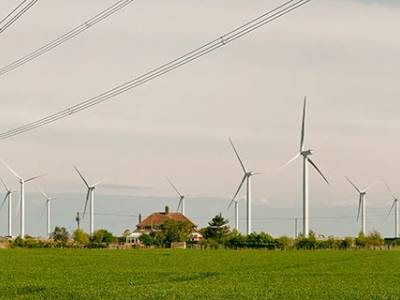I would like to pursure:
- Masters programs in Energy Management OR
- MBA Oil & Gas
Part-time mode.
I'm placed in Dubai and would like a program where face to face modules are conducted once every few months. Below is the list of some programs I've found and would like to know more:
1. ESCP Europe - Master in Energy Management looks good, 12m program with 5 modules (2-week each) at London, Berlin, Paris & New Delhi.
2. BI Norway - Exec Master in Energy Management, 18m program with 5 modules, program is similar to ESCP Europe.
3. Aberdeen Business School - MBA Oil & Gas program looks good, but part-time won't be possible due to monthly workshops. They also offer this by Distance learning but too long (3 years).
4. Thunderbird School - Cert in Oil & Gas Management, essentially an online program but content looks good, very reasonable and completed over 6 months. Not sure about the depth of the content though.
I come from shipping background and would like to make a career shift into Energy / Oil & Gas sector. With 2 years of experience in Sales now, I intend taking up BD / Strategy role in Energy sector.
Would like to read advise on:
a. Which course among above would be most beneficial for career move?
b. Would such course be a door opener into the industry?
Looking forward to read from members, especially from advisors and ESCP Alumni.
Masters in Energy Management OR Oil & Gas (Part-time)
Posted Feb 08, 2013 17:10
- Masters programs in Energy Management OR
- MBA Oil & Gas
Part-time mode.
I'm placed in Dubai and would like a program where face to face modules are conducted once every few months. Below is the list of some programs I've found and would like to know more:
1. ESCP Europe - Master in Energy Management looks good, 12m program with 5 modules (2-week each) at London, Berlin, Paris & New Delhi.
2. BI Norway - Exec Master in Energy Management, 18m program with 5 modules, program is similar to ESCP Europe.
3. Aberdeen Business School - MBA Oil & Gas program looks good, but part-time won't be possible due to monthly workshops. They also offer this by Distance learning but too long (3 years).
4. Thunderbird School - Cert in Oil & Gas Management, essentially an online program but content looks good, very reasonable and completed over 6 months. Not sure about the depth of the content though.
I come from shipping background and would like to make a career shift into Energy / Oil & Gas sector. With 2 years of experience in Sales now, I intend taking up BD / Strategy role in Energy sector.
Would like to read advise on:
a. Which course among above would be most beneficial for career move?
b. Would such course be a door opener into the industry?
Looking forward to read from members, especially from advisors and ESCP Alumni.
Posted Feb 08, 2013 22:53
The ESCP and BI programmes are the ones to take seriously. They will have high quality cohorts and the ability to build serious networks. They both place an emphasis on consultancy skills.
Personally, I'd go for BI. It's most strong associated with energy, and the partnership with IPF is very strong for oil and gas. The two weeks at Berkeley will look great on your resume. It also offered more time in class, over a much more sustainable period: nine weeks over 12 months sound much more intense than 10 weeks over 18 months: I think you'll learn more in the extra half year, and be able to go deeper with your consulting project.
Personally, I'd go for BI. It's most strong associated with energy, and the partnership with IPF is very strong for oil and gas. The two weeks at Berkeley will look great on your resume. It also offered more time in class, over a much more sustainable period: nine weeks over 12 months sound much more intense than 10 weeks over 18 months: I think you'll learn more in the extra half year, and be able to go deeper with your consulting project.
Posted Feb 09, 2013 10:02
Thanks Duncan.
However, I noticed that none of ESCP or BI programs are accredited by The Energy Institute. ESCP program is accredited by AMBA, AACSB, EQUIS and BAC whereas BI has only EQUIS.
However, I noticed that none of ESCP or BI programs are accredited by The Energy Institute. ESCP program is accredited by AMBA, AACSB, EQUIS and BAC whereas BI has only EQUIS.
Posted Feb 09, 2013 13:24
The Energy Institute is almost exclusively a British institution. I don't think it has any notable presence outside the British Commonwealth; its accredited programmes are almost all in the UK, with a few in Britain's former colonies.
Both ESCP and BI are world-class schools. They are in the top two or three schools in their country. As a Norwegian school, of course, BI has a powerful global network in the oil and gas industries.
EQUIS is the principal European body for accreditation and, since both ESCP and BI have it, I think that is enough to assure you. Either of these programmes will be great.
AMBA primarily accredits MBA programmes. It doesn't accredit many (if any) specialist masters and, indeed, its energy programme is not accredited by AMBA [http://www.mbaworld.com/MBAWorld/doShowBusinessSchool.action?editbusinessSchoolId=44] and that's nothing to worry about. Totally normal.
PS Don't make up your mind too quickly. I know that ESCP is very attractive because it's shorter, with less time in class and is cheaper. But speak to alumni and compare the learning experiences and the outcomes. Generally, the RoI on more expensive courses is much higher, even when the higher costs are taken into account.
Both ESCP and BI are world-class schools. They are in the top two or three schools in their country. As a Norwegian school, of course, BI has a powerful global network in the oil and gas industries.
EQUIS is the principal European body for accreditation and, since both ESCP and BI have it, I think that is enough to assure you. Either of these programmes will be great.
AMBA primarily accredits MBA programmes. It doesn't accredit many (if any) specialist masters and, indeed, its energy programme is not accredited by AMBA [http://www.mbaworld.com/MBAWorld/doShowBusinessSchool.action?editbusinessSchoolId=44] and that's nothing to worry about. Totally normal.
PS Don't make up your mind too quickly. I know that ESCP is very attractive because it's shorter, with less time in class and is cheaper. But speak to alumni and compare the learning experiences and the outcomes. Generally, the RoI on more expensive courses is much higher, even when the higher costs are taken into account.
Posted Feb 10, 2013 06:05
Thank you Duncan for your valuable inputs.
Certainly, ESCP is more attractive, being shorter and would be cheaper due to less travel, though difference in fees is marginal.
I'll try to get in touch with Alumni and know more about their learning experience before deciding.
Certainly, ESCP is more attractive, being shorter and would be cheaper due to less travel, though difference in fees is marginal.
I'll try to get in touch with Alumni and know more about their learning experience before deciding.
Posted Feb 10, 2013 09:56
Hi Duncan,
Am I missing any other program delivered in similar format.
I am based at Dubai.
Am I missing any other program delivered in similar format.
I am based at Dubai.
Posted Feb 10, 2013 14:19
I don't really follow the market for part-time MSc programmes in energy, but I would have thought they'd pop up on Google.
Posted Feb 11, 2013 13:07
How much work experience do you have?
WU Executive Academy has a similarly-structured module program, where you could focus on energy.
And actually, Cass offers an executive-level part-time MBA program in Dubai, which does have energy elective options. I think they look for people with around 7 years of work experience, but tend to be pretty flexible with the Dubai cohort.
WU Executive Academy has a similarly-structured module program, where you could focus on energy.
And actually, Cass offers an executive-level part-time MBA program in Dubai, which does have energy elective options. I think they look for people with around 7 years of work experience, but tend to be pretty flexible with the Dubai cohort.
Posted Feb 11, 2013 13:27
Hi Ralph..
I came across this program a couple of hours back.. still haven't been thru complete info.
BTW, I have 14 years experience at sea (quit as Captain onboard Commercial ships) and 2 years in Sales.. I know about Cass and have attended their info session, they have only one elective related to Energy which is quite superficial. I am not sure if that would provide sufficient leverage to enter Oil/Energy Industry.
I came across this program a couple of hours back.. still haven't been thru complete info.
BTW, I have 14 years experience at sea (quit as Captain onboard Commercial ships) and 2 years in Sales.. I know about Cass and have attended their info session, they have only one elective related to Energy which is quite superficial. I am not sure if that would provide sufficient leverage to enter Oil/Energy Industry.
Related Business Schools
Other Related Content
After the MBA: Alumni Careers in the Energy Sector
Article Jun 01, 2011
Interviews with b-school alumni working in this constantly evolving industry
Top Business Schools for Energy and Natural Resources
Top List
Some MBA programs offer specializations in energy, which can help prepare students for industry's complex interplay between politics, finance, and the environment. See a list of the top ten best business schools for a career in energy
Hot Discussions
-
UPF-BSM vs EAE Business School vs UAB, seeking insights over potential business schools in Barcelona, Spain.
Nov 07, 2024 148 12 -
Torn Between Ivey and RSM: What Would You Choose?
Oct 29, 2024 240 12 -
Best School for a JD/MBA Dual Degree?
Nov 03, 2024 3,963 10 -
accreditation of french business schools
Oct 23, 2024 952 9 -
Question about some Masters- ESCP or EDHEC or Cranfield.
Oct 30, 2024 119 7 -
Are executive short courses that bad? Any alternatives if employer pays?
Nov 13 05:10 PM 77 4 -
OHM MBA in Germany
Nov 06, 2024 75 4 -
Looking to pivoting into management role in California
2 hours ago 18 3


-567a7.jpeg)


